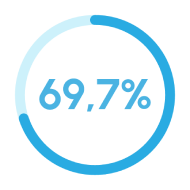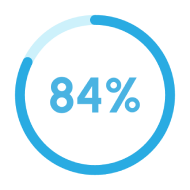

Personalized assisted reproductive treatments with the best outcomes
IVI is one of the European centres with the best pregnancy rates: 9 out of 10 couples who put their trust in us achieve their objective.

Egg donation at IVI is performed in accordance with current EU legislation and follows the strict medical protocols and standards established by the IVI Group. Our egg donation programme follows a robust and strict traceability process.
Suitability, quality, safety and immediacy. Trust the most exclusive Egg Bank in the world, one that treats its donors with great care


IVI guarantees the final price of the treatment excluding diagnostic tests and complementary techniques. All this together with personalised attention during the day-to-day treatment which makes us the benchmarks in the sector.
See Prices
IVI, is a leading reproduction medicine centre, offering the best fertility treatments and techniques in Spain, both to Spaniards as to foreign patients.
At our fertility clinics in Madrid, Valencia, Barcelona, Málaga, Bilbao, Saint Sebastian, Las Palmas, Mallorca and Alicante, we have medical specialists trained to care for patients in English, French, Italian and German, thus breaking the language barrier.
IVI was the first Spanish clinic specialized entirely in assisted reproduction. Since 1990 we have been growing thanks to the trust placed in us by both patients and specialists in gynecology and assisted reproduction. We provide personalized care in Spanish, English, German, French, Italian and Portuguese.
Audited by an independent company, IVI success rates are possible thanks to our commitment to scientific research, quality of all our processes, more than 1.900 scientific publications dedicated to solving infertility-related problems we focus on and above all, thanks to highly trained specialists. All this added together lets us offer our patients the best results year after year.



Each year around 5,000 couples from 80 countries visit our clinics in search of a top-quality treatment in reproductive medicine. 9 out of 10 couples that consult IVI due to problems with infertility and put their trust in us achieve their goal of becoming parents.

There is a story behind every patient. At IVI we forge links with all of our patients, because their stories are our successes.
More true stories